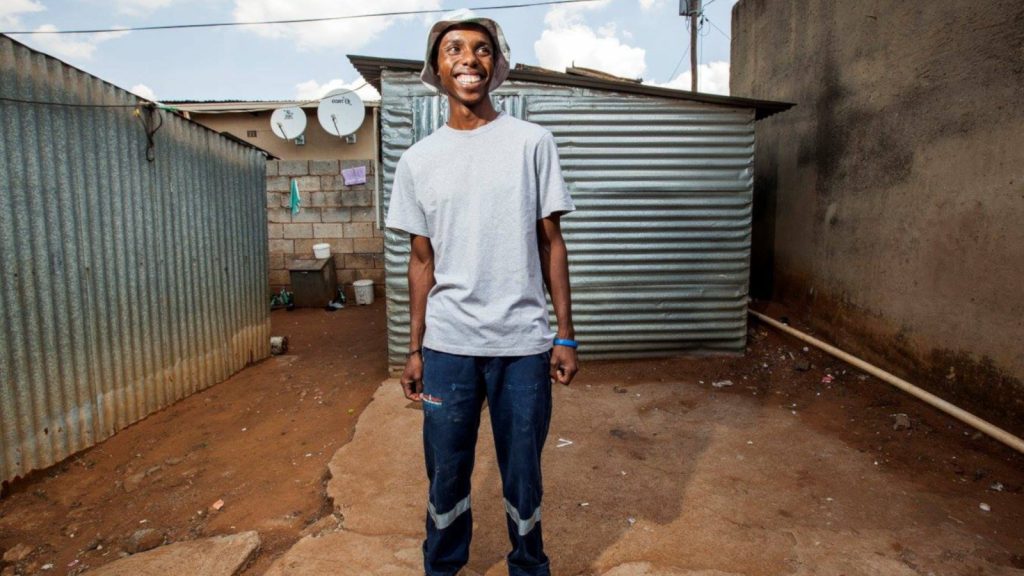Artificial Intelligence (AI) is no longer just a buzzword. It is embedded in everyday work, from drafting emails to automating entire workflows. For Memeburn’s…
SA social enterprise Hustlenomics among 2019 Seed Awards winners

Johannesburg-based social enterprise Hustlenomics has been named one of the winners of the 2019 Seed Awards for Entrepreneurship in Sustainable Development.
The annual awards aim to recognise socially inclusive, environmentally sustainable as well as economically viable early-stage green and social enterprises in developing and emerging countries.
Seed said in statement last Thursday (24 October) that the 14 winners and 52 finalists of the awards were selected from 906 applications from nine countries.
The 14 recipients of this year’s awards were drawn from Ghana, India, South Africa, Thailand, Uganda, Malawi, Zambia and Zimbabwe.
Over 900 applications were made for the 2019 Seed Awards
An independent international judging panel comprised of experts in business and development from international and local organisations selected the winners.
Hustlenomics targets low-income homeowners with informal backyard shacks who cannot access traditional home improvement financing. It was awarded the Seed Low Carbon Award.
The startup was founded in 2015 by Nhlanhla Ndlovu (pictured above). Last year Hustlenomics won first place at the 2018 SAB Foundation Social Innovation Awards, walking away with R1.3-million in prize money for its solution (see this story).
Hustlenomics replaces these shacks with durable structures using recycled bricks and applies an innovative shared home financing model where rental income generated from the completed structure is used to recoup building costs, before full ownership is handed over.
The initial costs borne by Hustlenomics include building materials, labour costs, and transaction costs for the search for tenants to occupy the space for rental.
The other African winners are:
Nelplast Eco (Seed Low Carbon Award): This Ghanaian firm was founded in 2013 and turns waste plastic bags, water bags, plastic film, and containers into pavement slabs and tiles, which last more than 35 years and are 800% stronger than ordinary pavement blocks. Plastic waste is transformed through an innovative recycling process to produce new construction materials.
Tusafishe (Seed Low Carbon Award): Ugandan social enterprise Tusafishe produces sells and installs automated low-cost filters that eliminate the use of solid fuels to provide safe drinking water to large communities. Together with Finance Trust Bank, the startup which was founded in 2017 by Saudah Birungi provides customers such as schools with access to flexible loans that enable them to acquire the filters.
Tusafishe also supplies water filters to non-profit organisations involved in water, sanitation and hygiene activities, providing installation services and training for the beneficiaries.
Dytech (Seed Africa Award): This Zambian agribusiness, which was founded in 2016, produces innovative low-cost beehives made from unwanted wood waste. These are consigned to outgrowers in rural areas who then produce honey for export in Germany, China,Egypt and South Africa. Payments to outgrowers is provided in cash, supplies or solar products.
Enrapower (Seed Africa Award): Founded in 2016 by Lawrence Hoba, this Zimbabwean startup provides renewable energy solutions to households, commercial entities and utility-scale clients.
Green Impact Technologies (Seed Africa Award): Green Impact Technologies (GIT) sells solar home systems to rural communities through a pay-as-you-go business model where last-mile customers pay local agents an installation fee and then upload credit periodically through mobile money. GIT is also developing a biogas plant which will generate energy from agricultural waste for use by local restaurant entrepreneurs. The Malawian startup was founded last year.
Kibebe (Seed Africa Award): Kibebe trains marginalised artisans to produce upcycled products to sell at their brick and mortar outlet and at a local farmers market. The product line includes 35 products made from recycled materials. Profits are also given to a partner organisation that runs vocational training programmes, where graduates may also be integrated into the Kibebe workforce. The Malawian venture was founded in 2012 and the business was registered last year.
Kukula Solar (Seed Africa Award): Zambian startup Kukula Solar distributes solar products to low-income families through a rent-to-own model. Kukula Solar was founded in 2016.
AfriLeap (Seed South Africa Climate Adaptation Award): This Johannesburg-based urban agricultural company is
focused on hydroponically growing, harvesting and processing of hop cones for the South African craft beer and homebrew markets.
BN Aqua Solutions (Seed South Africa Climate Adaptation Award): Founded in 2016, this Pretoria-based firm uses a metallurgical waste product to treat acidic water to potable stage. The treated acid mine water is then sold to mines to save on drinking water costs and reduces the mines’ dependency from the municipalities.
Meat Naturally (Seed South Africa Climate Adaptation Award): Meat Naturally encourages management that mimics natural
wildlife movements and embraces and adds dignity to rural lives by “modernising” traditional livestock management systems. The firm which was founded in 2016 also helps provide flexible but consistent market access which enable African communal farmers to capitalise on market prices without incurring market risks.
The winners will receive matching grants to fullfill the immediate needs of their enterprises.
In addition, the winners will each join the Seed Accelerator where they will benefit from financial literacy training and support which will help them scale.
Read more: SAB Foundation awards R12.5m to SA’s most promising social innovators
Read more: The Red Bull Amaphiko Academy gives wings to social entrepreneurs
Featured image: Hustlenomics founder Nhlanhla Ndlovu (Hustlenomics via Facebook)

